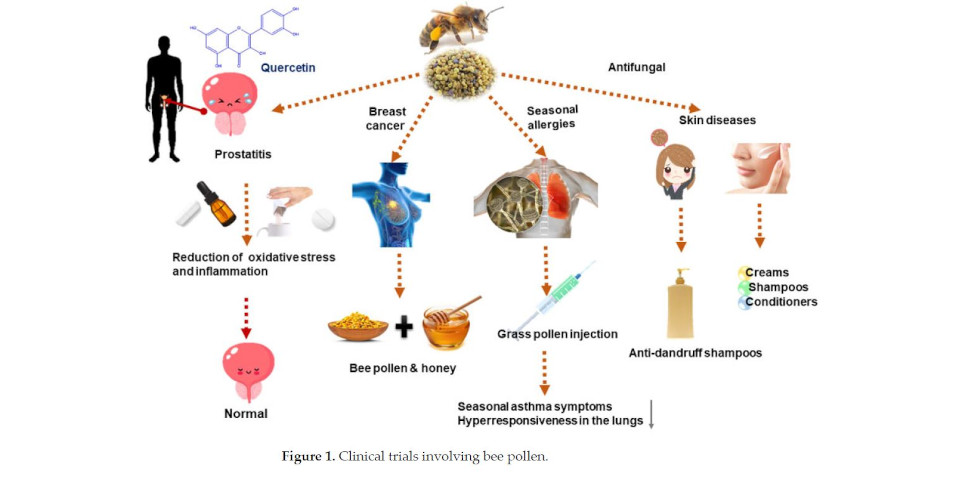Bee pollen is a natural cocktail of floral nectar, flower pollen, enzymes, and salivary secretions produced by honeybees. Bee pollen is one of the bee products most enriched in proteins, polysaccharides, polyphenols, lipids, minerals, and vitamins. It has a significant health and medicinal impact and provides protection against many diseases, including diabetes, cancer, infectious, and cardiovascular. Bee pollen is commonly promoted as a cost‐effective functional food. In particular, bee pollen has been applied in clinical trials for allergies and prostate illnesses, with a few investigations on cancer and skin problems. However, it is involved in several patents and health recipes to combat chronic health problems. This review aimed to highlight the clinical trials and patents involving bee pollen for different cases and to present the role of bee pollen as a supplementary food and a potential product in cosmetic applications.
2425 Members
127 Countries!
127 Countries!










